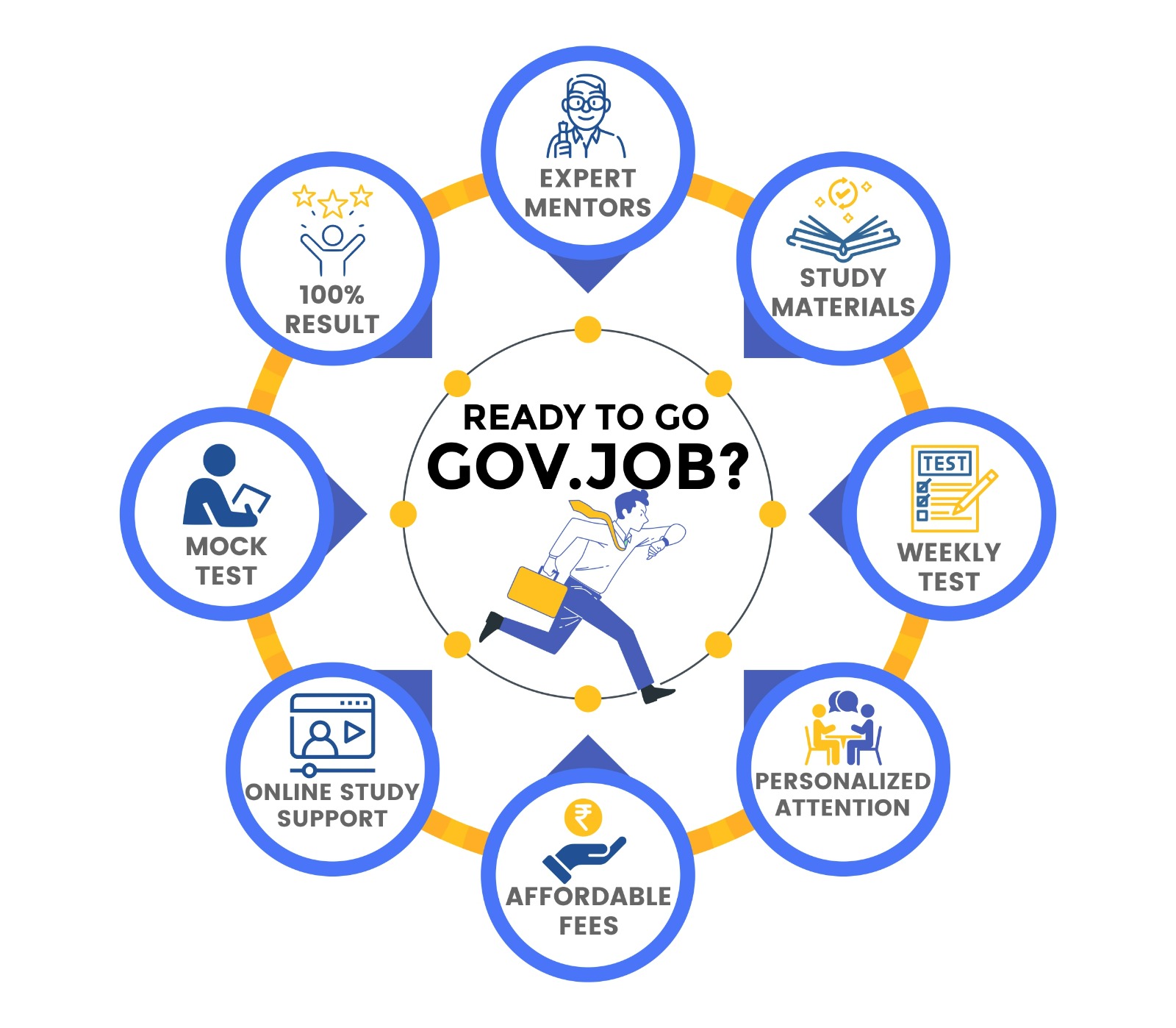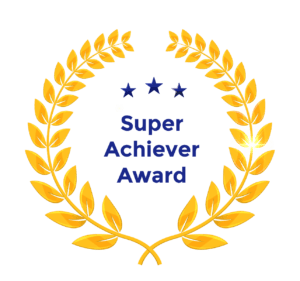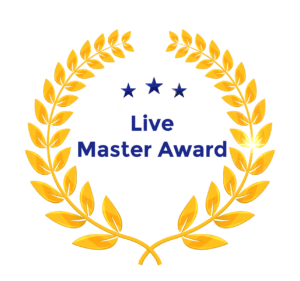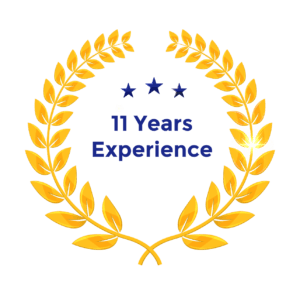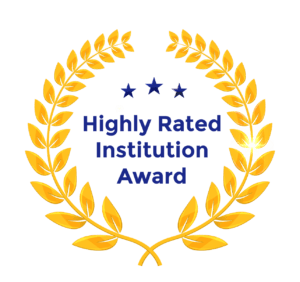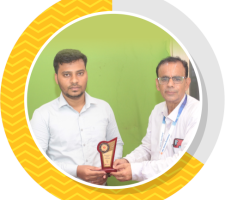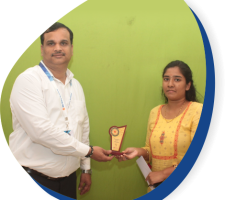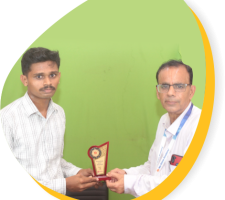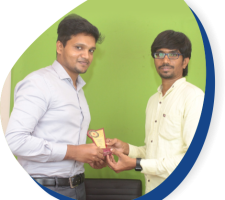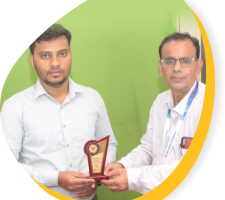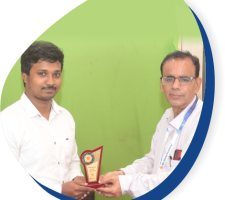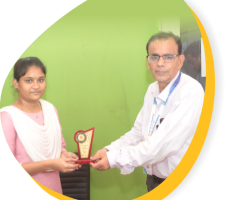Group I – Preliminary Exam
General Studies
UNIT – I : General Studies
Physics
Universe – General Scientific laws – Scientific instruments – Inventions and discoveries-National scientific laboratories-Science glossary-Mechanics and properties uf maller-Physical quantities, standards and units-Force, motion and energy- electricity and Magnetism – electronics & communications – Heat, light and sound-Atomic aml nuclear physics-Solid State Physics-Spectroscopy – Geophysics – Astronomy and space science .
Chemistry
Elements and Compounds-Acids, bases and salts – Oxidation and reduction – Chemistry of o res and metals -Carbon, nitrogen and their compounds-Fertilizers, pesticides, insecticides-Biochemistry and biotechnulugy-Electrochemistry-Polymers and plastics
Botany
Main Concepts of life science-The cell-basic unit uf life-Classification of living organism-Nutrition anrl dietetics-Respiration-Excretion of metabolic waste-Biocommunication
Zoology
Blood and blood circulation-Endocrine system-Re productivity system-Genetics the science of heredity-Environment, ecology, health and hygiene, Bio- diversity and its conservation-Human diseases, prevention and remedies-Communicable diseases and nun- communicable diseases-Alcoholism and drug abuse-Animals, plants and human life
UNIT – II : Current Events
History
Latest diary of events – National – National symbols -Profile of States-Defence. national security and terrorism-World organizations-pacts and summits-Eminent persons & places in news-Sports & games-Books & authors -Awards & honours-Cultural panorama-Latest historical events- India and its neighbours- Latest terminulugy Appoin tments-who is who?
Politcal Science
India’s foreign policy – Latest court verdicts – public opinion – Problems in conduct of public elections- Political parties and political system in India Public awareness & General administration- Role of Volunta1y organizations & Govt,- Welfare oriented govt. sc:hemes, the ir utility
Geography
Geographical landmarks-Policy on environment and ecology
Economics
Current socio-economic problems-New economic policy & govt. sector
Science
Lalest inventions on science & technology – Latest discoveries in Health Science – Mass media & communication
UNlT – III : Geography
Earth and Universe – Solar system – Atmosphere hydrosphere, lithosphere -Monsoon, rainfall, weather and climate – Water resources – rivers in India – Soil, minerals & natural resources-Natural vegetation-Forest & wildlife-Agricultural pattern, livestock & fisheries-Transport & communication-Social geography – population-density and distribution-Natural calamities – disaster management-Climate change – impact and consequences – mitigation measures-Pollution Control
UNIT – IV : History and culture of India
Pre-historic events -Indus valley civilization-Verdict, Aryan and Sangam age-Maurya dynasty-Buddhism and Jainism Guplas, Delhi Sultans, Mughals and Marathas-Agc of Vijayanagaram and the bahmanis South Indian history-Culture and Heritage of Tamil people-Advent of European invasion-Expansion and consolidation of British rule-Effect of British rule on socioeconomic factors-Social reforms and religious movements-India since independence – Characteristics of Indian culture-Unity in diversity – race, color, language, custom India-as secular state-Organizations for fine arts. dance, drama, music-Growth of rationalist, Dravidian movement in TN-Political parties and populist schemes – Prominent personalities in the various spheres – Arts, Science, literature and Philosophy Mother Teresa, Swami Vivekananda, Pandit Ravishankar M.S.Subbulakshmi, Rukmani Arundel and J.Krishnamoorthy etc
UNIT – V : INDIAN POLITY
Constitution of lndia – Preamble to the constitution – Salient features of constitution – Union, State and territory – Citizenship-rights amend duties – Fundamental rights – Fundamental duties – Human rights charter – Union legislature – Parliarnent – State executive – State Legislature – assembly – Status of Jammu &. Kashmir – Local government – panchayat raj – Tamil Nadu – Judiciary in India – Rule of law/Due process of law – Indian federalism – center – state relations – Emergency provisions – Civil services in lndia – Administralive challenges in a welfare state – Complexities of district administration – Elections – Election Comrnission Union and State – Official language and Schedule-VII – Amendments to constitulion – Schedules to constitution – Administrative reforms & tribunals- Corruption in public life – Anticorruption measures – Central Vigilance Commission, lok-adalats, Ombudsman, comptroller and Auditor General of India. – Right to information – Central and State Commission – Empowerment of women- Voluntary organizations and public grievances redressal – Consumer protection forms
UNIT – VI : INDIAN ECONOMY
Nature of Indian economy – Five-year plan modelsan assessment – Land reforms & agriculture – Application of science in agriculture – Industrial growth – Capital formation and investment-Role of public sector & disinvestment-Development of infrastructure- National income – Public finance & fiscal policy – Price policy & public distribution- Banking, money & monetary policy – Role of Foreign Direct Investment (FD!) – WTO-globalization & privatization – Rural welfare oriented programmes – Social sector problems – population, educ;:ition, health, employment, poverty – HRD – sustainable economic growth- Economic trends in Tamil Nadu – Energy Different sources and development – Finance Commission – Planning Commission – National development Council
UNIT – VII : INDIAN NATIONAL MOVEMENT
National renaissance- Early uprising against British rule-1857 Revolt- Indian National Congress – Emergence of national leaders- Gandhi, Nehru, Tagore, Netaji -Growth of militant movements -Different modes of agitations-Era uf different Acts & Pacts-World war & final phase struggle – Communalism led to partition- Role of Tamil Nadu in freedom struggle – Rajaji, VOC, Periyar, Bharathiar & Others – Birth of political parties / political system in India since independence
Aptitude & mental ability
Conversion of information to data Collection, compilation and presentation of data – Tables, graphs, diagrams – Parametric representation of data-Analytical interpretation of data -Simplification- Percentage-Highest Common Factor (HCF)-Lowest Common Mulliple (LCM)-Ratio and Proportion-Simple interest-Compound interest-Area-Volume-Time and Work- Behavioral ability – Basic terms. Communications in informabon technology – Application of Information and communication Technology (ICT) – Decision making and problem solving
Logical Reasoning
Puzzles – Dice – Visual Reasoning- Alpha numeric Reasoning – Number Series – Logic Number/ Alphabetical/Diagrammatic Sequences
Group I – Main Written Examination
PAPER – I – General studies (Degree Standard)
UNIT – I : Modern history of India and Indian culture
Advent of European invasion Expansion and consolidation of British rule – Effect of Briitish rule on socio-economic factors – Social reforms and religious movements – India since independence – Characteristics of lndian culture – Unity in diversity – race, colour, language, custom – India – a secular state – Organizations for fine arts, dance, drama, music – Growth of rationalist, Dravidian movement in Tamil Nadu – Political parties and populist schemes – National renaissance – Early uprising against British rule – 1857 Revolt – lndian National Congress – Emergence of national leaders – Gandhi, Nehru, Tagore, Netaji – Growth of militant movements -different modes of agitations – Era of different Acts & Pacts – World war & final phase struggle – Communalism led lo partition – Role of Tamil Nadu in freedom struggle – Raiaji, VOC, Periyar, Bharathiyar &. Others
Unit II : General Aptitude & Mental Ability
Conversion of information to data – Collection, compilation and presentation of data – Tables, graphs. diagrams – Parametric represendation of data -Analytical interpretation of data – Percentage – Highest Common Factor (IICF) – Lowest Common Multiple (LCM) – Ratio and Proportion – Simple interest – Compound interest – Area – Volume- Time and Work – Probability – lnformation technology- Basic terms. Communications – Application of Information and Communication Technology (ICT) – Decision making and problem solving – Basics in Computers/ Computer terminology.
UNIT – III : Role and impact of science and technology in the development of India and Tamil Nadu.
Nature or universe – General scientific laws – Scientific instruments – Inventions and discoveries – National scientific laboratories – Science glossary – Physical quantities, standards and units- Mechanics and properties uf matter – Force. motion and energy – heat, light and sound – Magnetism, electricity and electronics – Atomic and nuclear physics – Astronomy and space science – Elements and compounds – Acids, bases and salts – Oxidation and reduction – Carbon, nitrogen and their compounds – Natural disasters – safeguard measures – Chemistry of ores and metals – Fertilizers. pesticides, insecticides – Biochemistry and biotechnology – Polymers and plastics – Electrochemistry – Main concepts- of life science – The cell -basic unit oflife – Classification of living organism – Nutrition and dietetics – Respiration – Excretion of metabolic waste – Bio – communication – Blood and blood circulation – Endocrine system- Reproductivity system- Animals, plants and human life – Govt. policy /organizations on Science and Technology – Role, achievement & impact of Science and Technology – Energy – self sutl1ciency – oil exploration – Detence Research Organization – Ocean research and development – Genetics- the science of heredity- Environment. ecology, health and hygiene, Bio – diversity and its conservation – Human diseses. prevention ond remedies – Communicable dieases and non commicable dieases – Alchocolism Drug abuse – Computer science and advancement – Genetic Engineering – Remote sensing and benefits
PAPER – II General studies (Degree Standard)
UNIT -I : Indian polity and emerging political trends across the world affecting India and Geography of India
Indian polity – Constitution of India – Preamble tu the constitution – Salient features of constitution – Union state and territory – Citizenship – rights and duties – Fundamental rights – Directive principles of state policy fundamental duties – Human rights charter – Union executive – Union legislature – parliment – State executive – State legislature – assembly- Status ol Jammu and Kashmir – Local government – panchayat raj – Indian federalism – center state relations – Judiciary in lnd1a – Rule of law / Due process of law – Emergency provisions – Civil services in !ndia – Administrative Challenges in a welfare state – Complexities of district administration – Elections – Election Commission Union and State -Official language and Schedule – VII Amendments to constitution – Schedules to constitution
Emerging Political across the world affecting India : Foreign Affairs with special emphasis on India’s relations with neighbouring countries and in the region -Security and defence related matters – Nuclear policy, issues and conflicts-The Indian Diaspora and its contribution to India and the world.
Geography of India : Earth – Univerce – Solar system – Atmosphere. hytrosphere, lithosphere – Monsoon, rainfall – weather and climate – Water resources – rivers in India – Soil, minerals & natural resources – Natural vegetation – Forest & wildlife – Agriculture pattern, livestocks & fisheries – Transport including Surface Transport & communication – Social geography – population – density and distribution – Natural calamities – disaster management – 13ottom topography of indian ocean, Arabian Sea and Bay of Bengal – Climate change – impact and consequences – mitigation neasures – Pollution Control.
UNIT -I : Administrative of Union and States with special reference to Tamil Nadu
State government organization – structure, functions and control mechanism – District administration -role in people’s welfare oriented programs . Industrial map of Tamil Nadu – role of state government -Public Services – role of recruitment agencies – State finance – resources, budget and financial administration – Use of IT in administration- e-governance in the State -Natural calamities – Disaster Management. Union and State -strategic planning in the State – Social welfare – Government sponsored schemes with reference to Tamil Nadu – Union government Organization – structure, functions and control mechanism – Relationship between State and Union – Industrial map of India – role of Union government – Public Services – role of recruitment agencies in Union Government – Union finance – resources, budget and financial administration- list of IT in administration -e-governance in Union Government – Social welfare – government sponsored schemes by Government of India.
Paper – III – General Science
Current Events of national and International Importance
Latest diary of events – national / international symbols – Profile or states – Defence, national security andrl terrorism – Geographical landmarks World organizations – pacts and summits -Latest inventions on science & technology – Eminent personalities & places in new Sports & games – Books & authors – awards and honours – Cultural panorama – lalest historical event – Policy on environment and ecology – India and its neighbours – Natural disasters – safeguard measures – Latest terminalogy – Appoinments – who is who? – India’s foreign policy – Latest conrtrol verdicts – public opinion – Problems in conduct of public elections – Political parties and political system in India – Public awarenese -general adminitration- Role of voluntary organizations & govt. – Welfare oriented gvt. schemes their utlility – New economic policy & govt. sector – Mass media & communication
Current Economic Trends : Indian economy and Impact of globaleconomy of India
Indian Economy
Nature of Indian economy – Five – year plan models – an assessment – Land reforms & agriculture – Application of science in agriculture – Industrial growth – Capital formation and investmemt- Role of public sector & disinvestment – Development of infrastructure – National income – Public finance & fiscal policy – Price policy & public distribution – Consumerism & Consumer protection – Banking. money & monetary policy – Role of forerign Direct investment -HRD – Liberalisation globalization & Privatization – Rural welfare oriented programmes – WTO – sustainable economic growth – Economic trend in Tamil Nadu – Energy Different sources and development – Finance Commission – Planning Commission – National Development Council – Poverty Alleviation Programmes.
- lmpact of global economy on India : Impact of the Economic Crisis on India
(a) Offshoot of Globalized Economy –
(b) Aspects of Financial Turmoil in Indio – Capital Outflow – Impact on Stock and Forex Market – Impact of the Indian Banking System – lmpact on industrial Sector and Export Prospect – Impact of employment – Impact on Poverty
(c) Indian Economic Outlook.
India’s Crisis Responses and Challenges
(a) State of Economy in crisis Times
b) RBl’s Crisis Response
(c) Government’s Crisis Response
(d) The Risks and Challenges – Monetary policy – Fiscal Policy – Financial stability
The Options Ahead; Diversifying Exports
Boosting Domestic Consumption – Enhancing Public spending – Regenerating Employment- Provisioning credit to Productive Sectors- Need for Structural reforms- Increased purchasing power of the people.
Socio – Economic Issues in India / Tamil Nadu
Population Explosion – Unemployment issues in India & Tamil Nadu – child labour – Economic Issues (a) Poverty (b) Sanitation- Rural and Urban (c) Corruption in public life – Anti -Corruption measures – CVC, Lok-adalats, Ombudsman, CAC – Illiteracy – Women Empowerment- Role of the Government Women empowerment Social injustice to womenfolk. Domestic Violence -dowry menace, sexual assault – Loss of cultural heritage due to economic development – Urbanization and its impact on the society – Impact of violence on the growth of the nation. Religious violence,Terrorism and Communal violence – Regional Disparities – Problems of Minorities – Human Rights issues – Right to information – Central and State Commission – Faith and conflict among legislature, executive, judiciary and media. – Education – Linkage between Education and Economic Growth. – Community Development Programe – Employment Guarantee Scheme – Self Employment and Entrepreneurship Development – Role of N.G.O-s in Social Welfare – Government Policy on Health.
Physical Qualification
DSP post
Men Candidates
- Height : Not less than 165 cms
- Weight : 50 kgs
- Chest : Full inspiration 89 cm, full expiration 84cm, difference (Expansion) 5 cm
Women Candidates
- Height : Not less than 155 cms
- Weight : 50 kgs
